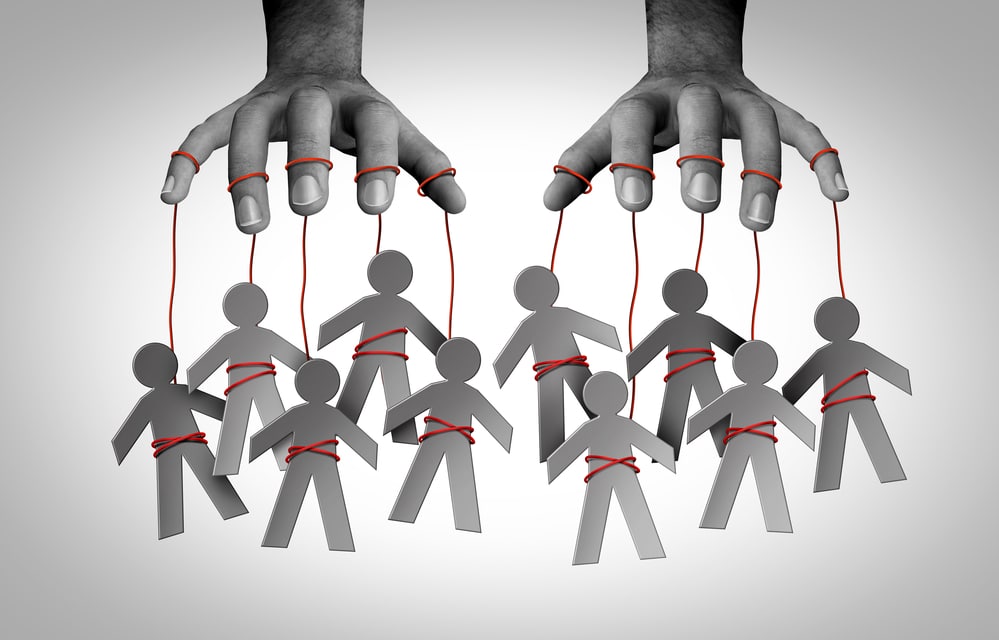Abusive personality disorder can have an immense impact on relationships, leaving victims feeling trapped and powerless. With a deeper understanding of this disorder and its manifestations, we can create a pathway to healing and prevention. This blog post will explore the complexities of abusive personality disorder, warning signs, and coping strategies for victims, as well as treatment options for those affected.
If you or a loved one has a personality disorder and needs help now call 855-299-4472.
Key Takeaways
- Understanding Abusive Personality Disorders is essential to identify and support victims of abuse.
- Therapy, medication management, setting boundaries, seeking professional help and practicing self-care are viable treatment options for individuals with abusive personality disorders.
- Long-term support from organizations like The Hotline can provide crucial assistance in recovering from the trauma of an abusive relationship.
Exploring Abusive Personality Disorders
Abusive personality traits often stem from a complex interplay of psychological, environmental, and other external factors. Psychologically, individuals may develop abusive tendencies due to unresolved trauma or mental health issues. Environmentally, growing up in a household where abuse was normalized can lead to the perpetuation of such behaviors. External factors like the presence of substance abuse, cultural norms or societal attitudes that endorse power imbalances further contribute to the development of abusive personality traits.
Abusive personality disorders, such as narcissistic and borderline personality disorders, can cause significant distress in relationships. These complex mental health conditions can lead to various types of abuse, including verbal, emotional, and physical, leaving victims feeling hopeless and fearful.
It is essential to understand the intricacies of these personality disorders in order to identify abusive behavior and support those affected.
Narcissistic Personality Disorder

Narcissistic personality disorder (NPD) is characterized by an individual’s deep and extreme need for attention and praise, sometimes leading to intimate partner abuse. Individuals with NPD often have an inflated sense of their own importance, prioritizing their feelings over others, and lacking empathy. This can negatively impact their partner’s self-esteem and create an environment ripe for abusive behaviors, such as bullying, bullying, and manipulation.
Recognizing the warning signs of an abusive relationship is essential to prevent domestic violence and protect oneself from the detrimental effects of narcissistic abuse.
Borderline Personality Disorder
Borderline personality disorder (BPD) is another mental health disorder that can be associated with abusive behavior in relationships. Individuals with BPD often struggle with a lack of a known, consistent self and heightened abandonment fears. This can lead to a higher tendency to become highly controlling in an effort to avoid rejection.
Non-borderlines are commonly subjected to various forms of abuse, such as:
- Verbal abuse
- Emotional abuse
- Psychological abuse
- Physical violence
Understanding the underlying causes of abuse in BPD is crucial for supporting those affected and finding appropriate intervention strategies.
If you or a loved one has a personality disorder and needs help now call 855-299-4472.
Identifying Abusive Behavior in Relationships
Abusive behavior can manifest in various forms, regardless of the specific personality disorder at play. Recognizing the warning signs of an abusive person is vital for protecting oneself and seeking help. It is important to consider clusters of traits, such as a lack of empathy, exploiting others, and domestic violence, rather than a single trait when assessing the potential for intimate partner violence.
Both genders are capable of being abusive, emphasizing the importance of staying vigilant and proactive in identifying and addressing abusive behavior in relationships.
Verbal Abuse

Verbal abuse is a common form of domestic violence among those with NPD and other personality disorders.
This type of domestic violence can include:
- Bullying
- Belittling
- Criticizing
- Raging
- Sarcasm
- Demanding
- Threatening
- Shaming
- Blaming
The destructive impact of verbal abuse can leave victims emotionally scarred and undermine their self-esteem, making it crucial to recognize and address this behavior in relationships.
Emotional Manipulation

Emotional manipulation is another tactic frequently used by abusive people. This form of psychological manipulation involves distorting reality through falsehoods or exaggerations to disorient and sway the victim, ultimately granting the manipulator control and their desired outcome. Examples of emotional manipulation tactics include gaslighting, playing the victim, and using guilt trips.
The ramifications of emotional manipulation can be significant, leaving victims feeling guilty, ashamed or with low self esteem and confused, as well as powerless and unable to make independent decisions.
Physical Violence

Physical violence is another harmful aspect of abusive relationships involving individuals with personality disorders. This intentional application of force or aggression can cause harm or injury to another person, taking on various forms such as physically abusive actions like:
- hitting
- punching
- kicking
- pushing
- any other form of physical assault
Physical abuse can be profoundly destructive, both physically and emotionally, making it essential to recognize and address it in relationships.
Mental Health and Abusive Personalities
Research has indicated that abusive personalities are often linked to mental health issues such as:
- Anxiety
- Depression
- Post-traumatic stress disorder (PTSD)
- Other personality disorders
Addressing mental health concerns is of great importance, as it can help mitigate the risks associated with abusive behavior.
Treatment can provide individuals with the tools to better regulate their partner’s behavior, reducing the likelihood of abusive behavior and fostering healthier relationships.
Co-occurring Mental Health Disorders
Co-occurring mental health disorders refer to the presence of additional mental health disorders in conjunction with abusive personality disorders. Some common co-occurring disorders include:
- Anxiety
- Depression
- PTSD
- Other personality disorders
These disorders are commonly associated with abusive personalities.
The presence of co-occurring mental health disorders can complicate the diagnosis and treatment of abusive personality disorders, as well as increase the risk of relapse and recurrence. Seeking professional help and support is crucial for managing these complex mental health conditions.
The Impact of Trauma
Trauma, an emotional reaction to a distressing or upsetting event, can have a long-term effect on an individual’s mental health and may result in the emergence of abusive personality disorders. Heightened levels of negative emotions, such as anger, fear, and anxiety, can lead to the adoption of unhealthy coping mechanisms, such as aggression and manipulation, resulting in abusive behavior.
Trauma may manifest as verbal abuse, emotional manipulation, and physical violence in the context of abusive behavior. Recognizing the role of trauma in abusive personality disorders is essential for supporting those affected and finding appropriate intervention strategies.
If you or a loved one has a personality disorder and needs help now call 855-299-4472.
Coping Strategies for Victims of Abusive Relationships
For those who find themselves in a relationship with someone exhibiting abusive behavior due to a personality disorder, it is crucial to prioritize self-care and healing.
This blog post will now explore practical strategies for coping with abusive relationships, including setting boundaries, seeking professional help, and practicing self-care and healing.
Setting Boundaries
Establishing clear and definite boundaries in a relationship with someone who has borderline personality disorder or other personality disorders can promote greater assurance and provide a sense of security for both partners. Boundaries can teach appropriate behavior to avoid rejection and help the person with the personality disorder understand the extent of their behavior.
Setting boundaries is essential for protecting oneself from further abuse and providing a sense of control over the situation.
Seeking Professional Help

Victims of abusive relationships with an abusive partner are encouraged to seek professional help from therapists or support groups to navigate their situation. Therapists can provide individual counseling, couples counseling, or family therapy to address the psychological effects of the abuse.
Support groups can offer a safe, supportive environment for survivors to share their experiences and receive support from others who have been through similar situations. Obtaining professional assistance is essential for providing the highest quality of care and ensuring effective treatment and support.
Self-Care and Healing
Self-care and healing after experiencing an abusive relationship are essential to re-establish a sense of safety and security, as well as to address and overcome the trauma of the experience. Some recommended self-care strategies for victims of abusive relationships include:
- Seeking support from trusted friends or support groups
- Practicing self-compassion
- Engaging in activities that bring joy and relaxation
- Setting boundaries
- Considering professional help from therapists or counselors specializing in trauma and abuse.
These strategies can aid victims in processing and recovering from the trauma, ultimately fostering healthier relationships and personal growth.
Treatment Options for Abusive Personality Disorders
Several treatment options are available for individuals with abusive personality disorders to help manage their symptoms and improve their relationships. These options may include therapy, such as cognitive therapy and dialectical behavior therapy, as well as seeking support from organizations like The Hotline.
The following sections will explore these treatment options in more detail.
Psychotherapy
Psychotherapy, such as cognitive therapy and dialectical behavior therapy, is generally employed as a treatment for abusive personality disorders. Cognitive-behavioral therapy (CBT) focuses on assisting individuals in recognizing and altering detrimental thought patterns and behaviors.
Dialectical behavior therapy (DBT) emphasizes the regulation of emotions, stress management, and the enhancement of interpersonal relationships. Seeking professional help and support from therapists experienced in treating abusive personality disorders is crucial for effective treatment and care.

Medication Management
Medication management for abusive personality disorders may include psychiatric medications such as antidepressants, mood stabilizers, and antipsychotics to help manage symptoms. However, medication alone is not sufficient for treating abusive personality disorders and should be supplemented with therapy and other interventions.
Utilizing medication in combination with therapy and other interventions is essential for treating abusive personality disorders and fostering healthier relationships.
Long-Term Support
Long-term support for individuals with abusive personality disorders may include confidential support hotlines, therapy or counseling, and resources for victims of narcissistic abuse. Long-term support is essential for those with abusive personality disorders as it can assist them in gaining insight into their disorder, learning how to control their symptoms, and establishing healthier relationships.
Types of long-term support available include confidential support hotlines, therapy or counseling, and resources for victims of narcissistic abuse.
Summary
Understanding abusive personality disorders and their impact on relationships is crucial for identifying warning signs, supporting victims, and fostering healthier relationships. By exploring the complexities of narcissistic and borderline personality disorders, recognizing abusive behavior, and implementing coping strategies and treatment options, we can create a path to healing and prevention. Together, we can break the cycle of abuse and build a brighter future for ourselves and those affected by abusive personality disorders.





